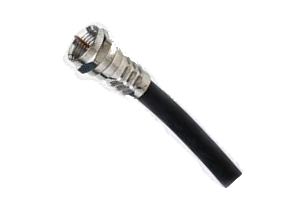 On June 30, Gov. Blagojevich signed Senate Bill 678 into law. Included in that bill are two acts that impact cable television: “The Cable and Video Competition Law of 2007” and “The Cable and Video Customer Protection Law.”
On June 30, Gov. Blagojevich signed Senate Bill 678 into law. Included in that bill are two acts that impact cable television: “The Cable and Video Competition Law of 2007” and “The Cable and Video Customer Protection Law.”
This bill that passed is far superior to House Bill 1500, on which I commented back in March. A good overview of the bill is provided by the Illinois Municipal League.
Under this new legislation, a cable provider can choose to either get a local franchise license through the county or home rule municipality, or get a state franchise license through the Illinois Commerce Commission. However, even if the cable provider decides to get a state license, the bill provides adequate protection of and compensation to municipalities for the use of their rights-of-way.
Public, educational, and governmental (PEG) access is maintained in this bill (cable companies have to provide it), and the transmission of PEG programming must be transmitted to customers “at no cost to the local unit of government or the public, education, and government programming providers.” It’s also provided that PEG access must be available on the lowest programming tier (i.e., part of the most basic cable package) and have “equivalent visual and audio quality…from the viewing perspective of the subscriber, to that of commercial channels.”
The franchise fee paid to the municipality is set at 5% of gross revenues, which is the maximum allowed by federal law. But here’s an interesting item: the municipality can tack on another 1% of gross revenues “as support for public, education, and government access,” and the cable operator “may identify and collect the amount of the [PEG] programming support fee as a separate line item on the regular bill of each subscriber.” So don’t be surprised if that fee starts showing up on your bill someday — that will be the price you pay for having city council meetings broadcast on channel 22.
Telecommunications companies really win, though, when it comes to build-out requirements. Whereas under local franchise agreements, municipalities usually require cable companies to offer service to the whole municipality, this bill allows companies to target just part of a market area, as long as they meet certain requirements. The Illinois Municipal League explains it this way:
All of the requirements are outlined and can be summarized in the broad general sense — 35% within 3 years and if 15% of the customers sign up in that market area then they must build to 50% within 5 years. The requirements are based on local exchanges. The low-income requirements for service are in the bill, which are 30% in the area.
The bill makes it clear that a cable provider “is under no obligation to serve or provide access to an entire exchange or local unit of government.” But here’s something interesting. In section 21-1101(d)(1), it says this:
…if the holder [of a state franchise agreement] is an incumbent cable operator or any successor-in-interest company, it shall be obligated to provide access to cable or video services within the jurisdiction of a local unit of government at the same levels required by the local franchising authorities for that local unit of government….
So, that sounds like if Insight here in Peoria decided to get a state franchise, it would be required to continue providing service to the whole city. But not so fast — Insight likely wouldn’t be considered an “incumbent cable operator” under this law.
The Act defines “incumbent cable operator” as an entity “that provided cable services or video services in a particular area under a franchise agreement with a local unity of government…on January 1, 2007.” Insight has not had a franchise agreement with Peoria since April 2006 when the last agreement expired. The city has been negotiating a new franchise agreement ever since, but the two parties have not come to terms. So it’s very possible that Insight would not be subject to the “incumbent cable operator” provisions of the Act.
Added to the mix locally is the fact that Comcast is in the process of taking control of the cable system here from Insight, and nobody knows what their plans are. Peoria’s Corporation Counsel Randy Ray had this to say about the new law: “The new Bill changes the landscape. We do not yet know what course Comcast, which is purchasing from Insight will take. As we learn what is going to happen, we will share the information.”
On the positive side, this bill opens up the possibility that cable competition could come to Peoria (or part of Peoria, at least). Most likely this competition would come from AT&T, which already has its phone lines strung all over the city. Whoever wishes to get a state franchise license has to apply to the Illinois Commerce Commission (ICC), and the Act requires that the ICC publish those applications on its website within five days of receiving the application. So far, there have been no applications submitted.

 On June 30, Gov. Blagojevich signed
On June 30, Gov. Blagojevich signed 

 Yes, I know it’s in its third season and it’s won an Emmy, but I had never seen an episode of NBC’s comedy show “
Yes, I know it’s in its third season and it’s won an Emmy, but I had never seen an episode of NBC’s comedy show “